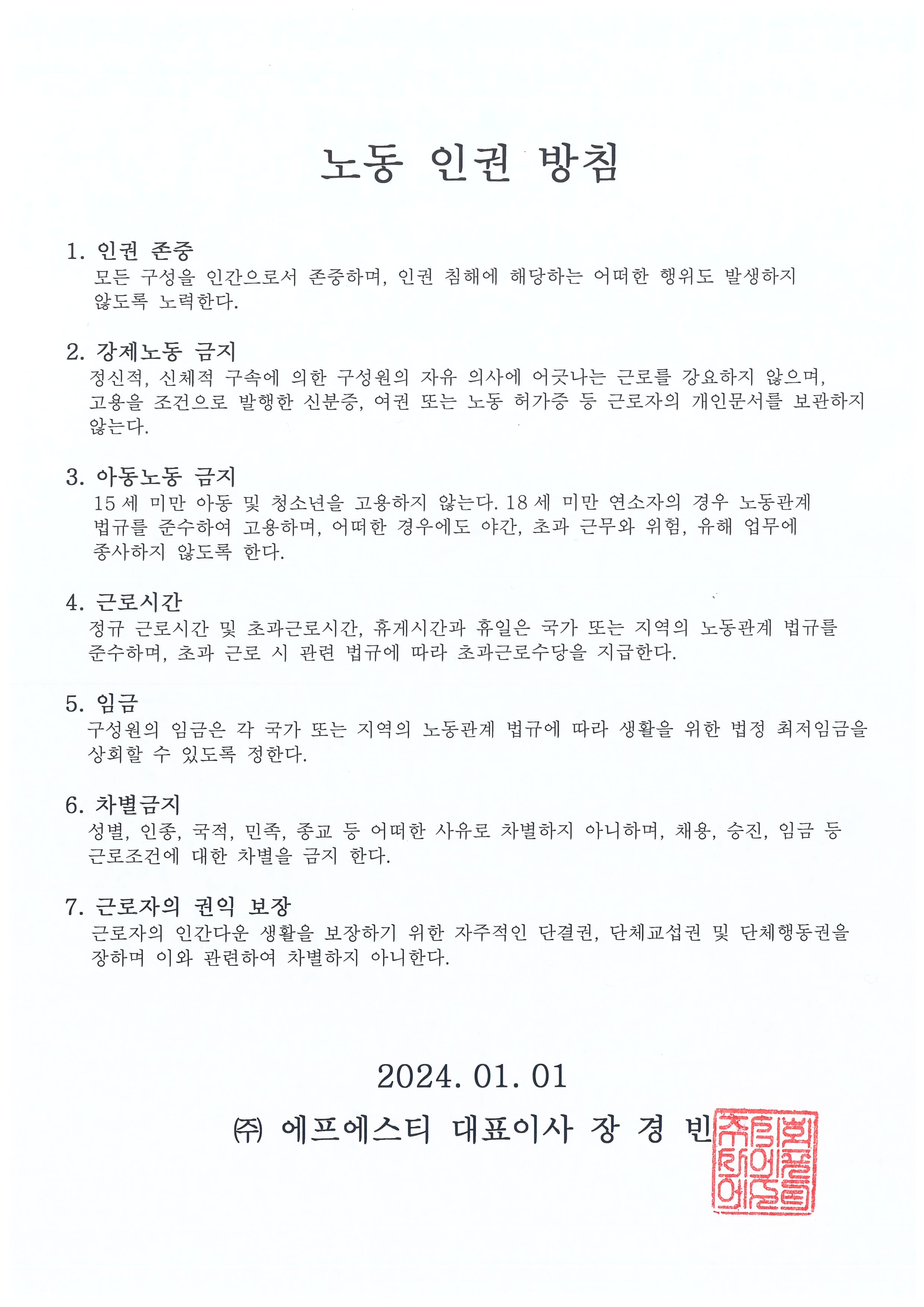ESG Vision
FST continuously strives towards the sustainable development based on ESG Management.
Human Value Management
FST ensures equal opportunities for all employees and support staff, prohibiting any form of discrimination. FST respects the freedom of association of all employees. Additionally, the company strives to incorporate human rights respect into all aspects of its business activities to protect and enhance the rights of everyone in the company and supply chain.
FST requires primary partner companies to manage human rights risks identified in their business activities at the same level as ours. Furthermore, we expect collaboration from suppliers or subcontractors providing goods or services to maintain the standards outlined in our human rights policy.

Policy
- FST respects *International Bill of Human Rights and *International Labour Organization(ILO) declaration on fundamental principle and right at the workplace.
- FST established Human Rights Policy based on internationally proven human rights standards, such as Universal Declaration of Human Rights(UDHR), UN Guiding Principles on Business and Human Rights, OECD Guidelines for Multinational Enterprises, UN Convention on the Rights of the Child, and the UN Protocol to Prevent, Suppress, and Punish Trafficking in Persons.
- FST adheres to the Responsible Business Alliance (RBA) Code of Conduct for global corporate social responsibility and complies with the laws and regulations of the countries where we operate.
- * The International Bill of Human Rights consists of the Universal Declaration of Human Rights, the International Covenant on Civil and Political Rights(ICCPR), the International Covenant on Economic, Social and Cultural Rights(ICESCR), and their two Optional Protocols.
- ** The ILO Declaration commits to respecting core ILO conventions, including the freedom of association and the recognition of the right to collective bargaining(C87, C98), the abolition of forced labor or its elimination(C29, C105), the elimination of child labor(C138, C182), and the elimination of discrimination in employment and occupation(C100, C111).

